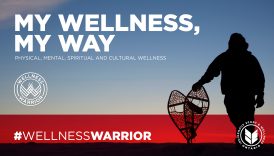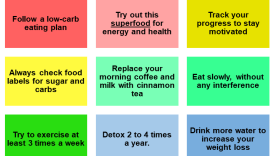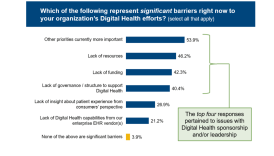Discover the Key Ingredients for a Healthier You

In today’s fast-paced world, maintaining a healthy lifestyle can often feel overwhelming. With so much information available, from diet trends to fitness regimens, one might wonder where to start. However, the core principles of health remain unchanged. A balanced approach that encompasses nutrition, physical activity, mental well-being, and adequate rest forms the foundation for a quality life.
- Discover the Key Ingredients for a Healthier You
- A Holistic Perspective
- Importance of Nutrition in Health
- Benefits of a Balanced Diet
- Understanding Macronutrients
- The Role of Physical Activity
- Benefits of Regular Exercise
- Types of Physical Activities
- Importance of Mental Health
- Strategies for Stress Management
- Building Resilience and Positive Mindset
- Quality Sleep for Overall Well-being
- Impact of Sleep on Health
- Tips for a Better Night's Sleep
- Hydration and Its Health Benefits
- Importance of Staying Hydrated
- Best Hydration Practices
- The Power of Mindful Eating
- Mindful Eating Techniques
- Developing Healthy Eating Habits
- The Influence of Social Connections on Health
- Benefits of Strong Social Relationships
- Building a Support System
- Self-Care Practices for a Healthier Lifestyle
- Importance of Self-Care
- Self-Care Tips for Improved Well-being
- Stress Management Techniques for Better Health
- Stress Relief Strategies
- Mindfulness Practices for Stress Reduction
A Holistic Perspective
To illustrate, let’s consider an example. Sarah, a working professional, struggled with constant fatigue and occasional anxiety due to her busy schedule. After consulting a nutritionist and a fitness coach, she realized that small, consistent changes led to remarkable improvements in her energy levels and mood. This shift involved:
- Eating nutrient-rich foods
- Incorporating daily exercise routines
- Prioritizing sleep and mental health
The journey to wellness is personal, yet certain universal practices can guide anyone looking to enhance their lifestyle. Together, let’s explore these essential elements to build a healthier and happier life.
Importance of Nutrition in Health
Nutrition is often touted as the cornerstone of a healthy lifestyle, and for good reason. A well-balanced diet not only fuels the body but also significantly influences overall well-being.
Benefits of a Balanced Diet
Adopting a balanced diet can lead to a multitude of benefits. For instance, when John switched from fast food to home-cooked meals rich in fruits and vegetables, he found that his energy levels soared. Here are some key advantages:
- Weight Management: Helps maintain or achieve a healthy weight.
- Efficient Metabolism: Aids in better digestion and nutrient absorption.
- Improved Mood: Nutrient-rich foods can enhance mental health and emotional stability.
Understanding Macronutrients
At the heart of a balanced diet lies the understanding of macronutrients: carbohydrates, proteins, and fats. Each plays a unique role in our health. For example:
- Carbohydrates: Provide energy and support brain function.
- Proteins: Essential for muscle repair and growth.
- Fats: Crucial for hormonal balance and vitamin absorption.
By understanding and incorporating these macronutrients into daily meals, individuals can achieve a harmonious nutrient balance that supports their health goals.
The Role of Physical Activity
After establishing the importance of nutrition, the next pillar of a healthy lifestyle is physical activity. Regular exercise not only complements a balanced diet but also enhances overall well-being significantly.
Benefits of Regular Exercise
Consider Julia, who started incorporating 30 minutes of exercise into her daily routine. She soon experienced remarkable changes in both her physical and mental health. Some notable benefits include:
- Enhanced Cardiovascular Health: Reduces the risk of heart diseases.
- Weight Control: Helps maintain or lose weight by burning calories.
- Improved Mood: Releases endorphins that can reduce anxiety and depression.
Types of Physical Activities
Finding the right type of physical activity can make all the difference. Here are some engaging options:
- Aerobic Exercises: Activities like jogging, cycling, or swimming boost heart health.
- Strength Training: Lifting weights enhances muscle strength and metabolism.
- Flexibility Exercises: Yoga or stretching improves mobility and prevents injuries.
Ultimately, integrating various forms of exercise into daily life not only fosters physical health but also nurtures mental clarity and emotional resilience.
Importance of Mental Health
As we continue our journey toward a healthier lifestyle, mental health plays an equally vital role alongside nutrition and physical activity. Just as we care for our bodies, we must also nurture our minds.
Strategies for Stress Management
Managing stress is crucial for maintaining mental health. For instance, when Mark found himself overwhelmed with work and family commitments, he turned to stress management techniques that transformed his daily life. Here are effective strategies anyone can adopt:
- Mindfulness Meditation: Taking just 10 minutes a day can help ground thoughts and promote calmness.
- Physical Activity: Regular exercise releases endorphins, naturally reducing stress levels.
- Time Management: Prioritizing tasks can minimize feelings of being overwhelmed.
Building Resilience and Positive Mindset
Resilience isn’t just a trait but a skill that can be developed. Emily, who faced significant life challenges, focused on cultivating a positive mindset by:
- Practicing Gratitude: Keeping a gratitude journal to reflect on daily positives.
- Embracing Challenges: Viewing difficulties as opportunities for growth.
- Seeking Support: Building strong relationships can provide emotional backing during tough times.
By integrating these practices into daily life, individuals can foster a resilient spirit and a positive outlook, contributing to overall mental well-being.
Quality Sleep for Overall Well-being
Building on the importance of mental health, one crucial aspect that significantly affects both mental and physical well-being is quality sleep. When Melissa started tracking her sleep patterns, she discovered how profoundly her sleep quality influenced her daily productivity and mood.
Impact of Sleep on Health
The effects of sleep deprivation can be staggering. Lack of sleep may lead to:
- Decreased Cognitive Function: Impairing memory and decision-making skills.
- Increased Stress Levels: Making it harder to cope with daily challenges.
- Health Risks: Heightened chances of chronic conditions like obesity and heart disease.
Conversely, good sleep can enhance mood, boost immunity, and spur creativity!
Tips for a Better Night’s Sleep
Improving sleep quality doesn’t have to be complicated. Here are actionable tips that can help:
- Establish a Regular Sleep Schedule: Going to bed and waking up at the same time daily reinforces the body’s natural circadian rhythm.
- Create a Sleep-Inducing Environment: Keep the bedroom dark, cool, and quiet.
- Limit Screen Time Before Bed: Reducing blue light exposure can promote better sleep.
By focusing on these practices, individuals can significantly enhance their sleep quality, aiding in overall health and well-being.
Hydration and Its Health Benefits
As we delve deeper into maintaining a healthy lifestyle, hydration stands out as a fundamental yet often overlooked component. After implementing better sleep habits, John’s newfound energy encouraged him to focus on drinking more water, leading to remarkable health improvements.
Importance of Staying Hydrated
Staying hydrated is vital for numerous reasons. Dehydration can lead to:
- Fatigue and Dizziness: Even mild dehydration can sap energy levels.
- Decreased Cognitive Performance: Lack of water can hinder focus and memory retention.
- Digestive Issues: Sufficient hydration supports smooth digestion and nutrient absorption.
John noticed that maintaining his hydration levels significantly lifted his mood and productivity throughout the day.
Best Hydration Practices
Incorporating hydration into your daily routine is easier than you might think. Here are some effective practices:
- Set Daily Goals: Aim for at least 8-10 glasses of water daily, adjusting for activity levels.
- Infuse Water with Flavor: Add fruits or herbs for a refreshing twist.
- Carry a Reusable Water Bottle: Keep it handy to sip throughout the day.
By prioritizing hydration, individuals can enhance their overall health and well-being, ensuring that their bodies function at their best.
The Power of Mindful Eating
Having explored the importance of hydration, let’s now turn our attention to a transformative approach to how we experience food: mindful eating. When Lisa struggled with emotional eating, she discovered that practicing mindfulness during meals brought her greater awareness and satisfaction.
Mindful Eating Techniques
Mindful eating involves fully engaging your senses while eating, allowing for a more meaningful connection with food. Here are some techniques Lisa found helpful:
- Slow Down: Take your time with each bite, savoring flavors and textures.
- Eliminate Distractions: Turn off the television and put away devices to focus solely on your meal.
- Listen to Your Body: Tune in to your hunger and fullness cues to avoid overeating.
Developing Healthy Eating Habits
In addition to mindful eating, cultivating healthy eating habits can further enhance one’s relationship with food. Some strategies include:
- Plan Meals Ahead: Creating a weekly menu can prevent impulsive eating choices.
- Include Variety: Experiment with different foods to keep meals exciting and nutritious.
- Stay Hydrated: Remembering to drink water throughout the day can help differentiate true hunger from thirst.
By embracing mindful eating and fostering healthy habits, individuals can build a more positive relationship with food, leading to better nutrition and overall wellness.
The Influence of Social Connections on Health
With a solid understanding of mindful eating and healthy habits, it’s important to recognize the significant impact social connections have on overall health. As Jason learned during a challenging period in his life, strong relationships can serve as a vital support network that promotes wellbeing.
Benefits of Strong Social Relationships
Having robust social connections offers multiple health benefits. Jason discovered that his friendships not only provided emotional support but also led to:
- Reduced Stress Levels: Sharing experiences and challenges can lighten burdens and foster resilience.
- Improved Mental Health: Engaging with friends can reduce feelings of loneliness and depression.
- Encouragement for Healthy Living: Social interactions can motivate individuals to adopt healthier lifestyles together.
Building a Support System
Creating a supportive network doesn’t have to be daunting. Here are some practical steps to build lasting connections:
- Reach Out: Make an effort to contact friends or family regularly—schedule coffee dates or phone calls.
- Join Groups: Participate in local clubs or online forums that align with your interests.
- Be Open: Cultivating genuine connections requires vulnerability—share your thoughts and feelings.
By nurturing social ties and fostering a support system, individuals can enhance their health and happiness, creating a rich tapestry of shared experiences and mutual encouragement.
Self-Care Practices for a Healthier Lifestyle
Having explored the profound impact of social connections, it’s essential to acknowledge the role of self-care in fostering a healthier lifestyle. When Rachel felt overwhelmed by her commitments, she realized the importance of prioritizing herself to cultivate balance and well-being.
Importance of Self-Care
Self-care is not merely a luxury; it’s a necessity for maintaining mental, emotional, and physical health. Rachel found that dedicating time to herself led to:
- Increased Energy: Regular self-care practices revitalized her spirit and boosted productivity.
- Enhanced Resilience: Taking time for herself made it easier to cope with life’s challenges.
- Improved Relationships: By caring for her own needs, Rachel was better equipped to support others.
Self-Care Tips for Improved Well-being
Incorporating self-care into daily life can be simple and fulfilling. Here are some enjoyable tips Rachel discovered:
- Schedule “Me Time”: Block off time weekly for activities you love, whether it’s reading, yoga, or gardening.
- Practice Gratitude: Maintain a journal to reflect on positive experiences and recognize achievements.
- Unplug Regularly: Take breaks from technology to reconnect with yourself and your surroundings.
By embracing self-care practices, individuals can enhance their overall well-being, leading to a more balanced and fulfilling life.
Stress Management Techniques for Better Health
Having acknowledged the vital importance of self-care, we must now turn our attention to effective stress management techniques. As Mark discovered during a particularly hectic work period, learning to manage stress not only improves health but also enhances quality of life.
Stress Relief Strategies
Finding effective stress relief strategies can be transformative. Mark started incorporating practices that made a noticeable difference, such as:
- Physical Activity: Engaging in regular exercises like running or dancing helped reduce his stress levels.
- Time Management: Creating daily to-do lists allowed him to prioritize tasks and minimize feelings of overwhelm.
- Deep Breathing: Taking a few moments daily to practice deep breathing exercises provided immediate relaxation.
Mindfulness Practices for Stress Reduction
In addition to relief strategies, embracing mindfulness can significantly reduce stress. Mark found these practices beneficial:
- Meditation: Setting aside 10 minutes in the morning for meditation created a positive mindset for the day.
- Mindful Walking: Taking a walk while focusing on the surroundings helped clear his mind and improve mood.
- Gratitude Journaling: Writing down three things he was grateful for each evening fostered a sense of appreciation and calm.
By integrating these stress management techniques into daily routines, individuals can cultivate a healthier, more balanced lifestyle, empowering them to respond to challenges with grace and equanimity.





